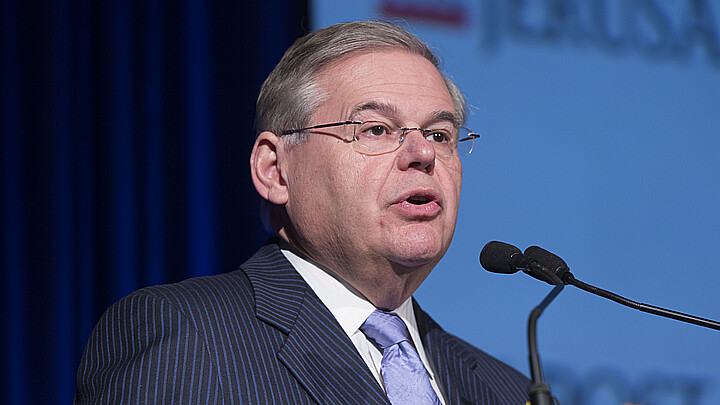Crime
U.S. strikes back against Moscow with charges over Russian disinformation campaign
The United States government on Wednesday struck back against the Kremlin in an indictment against Moscow-linked enterprises and their employees with criminal charges, sanctions and other measures to address what U.S. officials are calling a foreign influence campaign to create chaos in this year’s the presidential election

September 5, 2024 9:33am
Updated: September 5, 2024 2:30pm
The United States government on Wednesday struck back against the Kremlin in an indictment against Moscow-linked enterprises and their employees with criminal charges, sanctions and other measures to address what U.S. officials are calling a foreign influence campaign to create chaos in this year’s the presidential election.
The government’s announcements came from by the departments of Justice, State and Treasury, all of which accused Russia of violating U.S. laws and international norms as part of a campaign pushed by Vladimir Putin’s United Russia regime.
The schemes “make clear the ends to which the Russian government, including at its highest levels, is willing to go to undermine our democratic process,” U.S. Attorney General Merrick Garland was on record saying when addressing the Justice Department’s Election Threats Task Force. “This is deadly serious, and we are going to treat it accordingly.”
The federal indictment, filed by the U.S. Attorney’s Office for the Southern District of New York, was revealed Wednesday.
It accuses of Moscow of using two employees of the state-controlled Russia Today media outlet, shell companies and false identities to launder nearly $10 million to a Tennessee based company as part of an effort to push English-language material that advances the narrative of the Putin regime.
Officials said the unidentified media organization produced about 2,000 videos since November 2023, many of which were posted on social media platforms such as X, TikTok and YouTube.
The U.S. said that the YouTube videos had more than 16 million views, but that the Russian operation is much more significant.
“Our approach to combating foreign malign influence is actor-driven, exposing the hidden hand of adversaries pulling strings of influence from behind the curtain,” Deputy Attorney General Lisa Monaco said in a statement. “As alleged in today’s indictment, Russian state broadcaster RT and its employees, including the charged defendants, co-opted online commentators by funneling them nearly $10 million to pump pro-Russia propaganda and disinformation across social media to U.S. audiences. The Department will not tolerate foreign efforts to illegally manipulate American public opinion by sowing discord and division.”
The FBI concurred similarly.
“While RT America suspended its official operations in the U.S. back in early 2022, our investigation revealed that since at least last year, RT has used people living and working inside the U.S. to facilitate contracts with American media figures to create and disseminate Russian propaganda,” FBI Director Christopher Wray said.
“The content was pitched as legitimate independent news, when in fact, much of it was created in Russia by RT employees who work for the Russian government,” he explained.
Some of the Americans who say they are linked to the company believed to be the unidentified organization in the indictment, Tenet Media insist they were fooled into participating.
Benny Johnson, who hosts “The Benny Show” podcast, said the Justice Department’s accusations were alarming and wanted to “make clear that myself, and other influencers were victims in this alleged scheme.”
One of the other individuals, Tim Pool, wrote on X: “Should these allegations prove true, I as well as the other personalities and commentators were deceived and are victims. I cannot speak for anyone else at the company as to what they do or to what they are instructed,” he wrote, adding, “Never at any point did anyone other than I have full editorial control of the show and the contents of the show are often apolitical.”
U.S. based companies have not been charged, and the Justice Dept. said it did not warn or inform those Americans who may have been participating that their operations were being supported by Russia.
For its part, Russia Today denied the allegations.
“If they kick us out completely, how will they conduct the next elections?” Russia Today Editor-in-Chief Margarita Simonyan wrote on Telegram. “They don’t have any other strategies except to scaremonger about the almighty RT.”
The Russia Today employees identified in the indictment were 27-year-old Elena Afanasyeva and 31-year-old Kostiantyn Kalashnikov.
They are charged with failing to comply with the money laundering and the Foreign Agent Registration Act, which carries a potential sentence of up to five years in federal prison. Money laundering charges could result in charges of 20 years.
Justice Department officials also revealed another Russian disinformation operation Wednesday, related to 32 internet domains.
A separate indictment filed by federal prosecutors alleges that three Russian companies: ANO Dialog, Structura National Technology, and the Social Design Agency also committed money laundering violations and violated trademark laws as part of a scheme to confuse Americans.
That campaign was known as “Operation Doppelganger.”
“These websites were designed to appear to American readers as if they were major U.S. news sites like The Washington Post or Fox News,” Garland explained during the press conference. “But in fact, they were fake sites.”
Kremlin documents uncovered by U.S. government suggest that Moscow used the sites to push propaganda aimed at promoting former President Donald Trump, whom U.S. intelligence agencies say the Putin regime is covertly supporting.
As a result of these actions, the U.S. Treasury Department sanctioned two Russian entities and 10 Russia nationals, including Russia Today’s editor, Margarita Simonyan, and also announced new visa restrictions for those acting on behalf on Russian media.
For its part, the U.S. State Department officials also designated several Russian media outlets as foreign missions, which now requires all personnel from Russia Today, Sputnik, RIA Novosti and Rossiya Segodnya to notify the U.S. when they are working within the country.
They must also disclose all property holdings within the country.
“Russia remains the predominant threat to U.S. elections,” a senior FBI official said to journalists during the press conference. “Moscow continues to use a broad stable of influence actors and tactics and is working to hide its hand, enhance its reach and create content that resonates more with United States-based audiences,” the official added.
Russia is not the only country targeting the U.S. in disinformation operations. U.S. officials have also expressed concerns about Beijing and Tehran’s meddling efforts.
“We have observed increasingly aggressive Iranian activity during this election cycle that includes recently reported activities by Iran to compromise former President Donald Trump's campaign and to avoid an election outcome that it regards as against its interests,” Garland said.
“The Justice Department's message is clear,” he added. “We have no tolerance for attempts by authoritarian regimes to exploit our demographic, our democratic system of government.”










